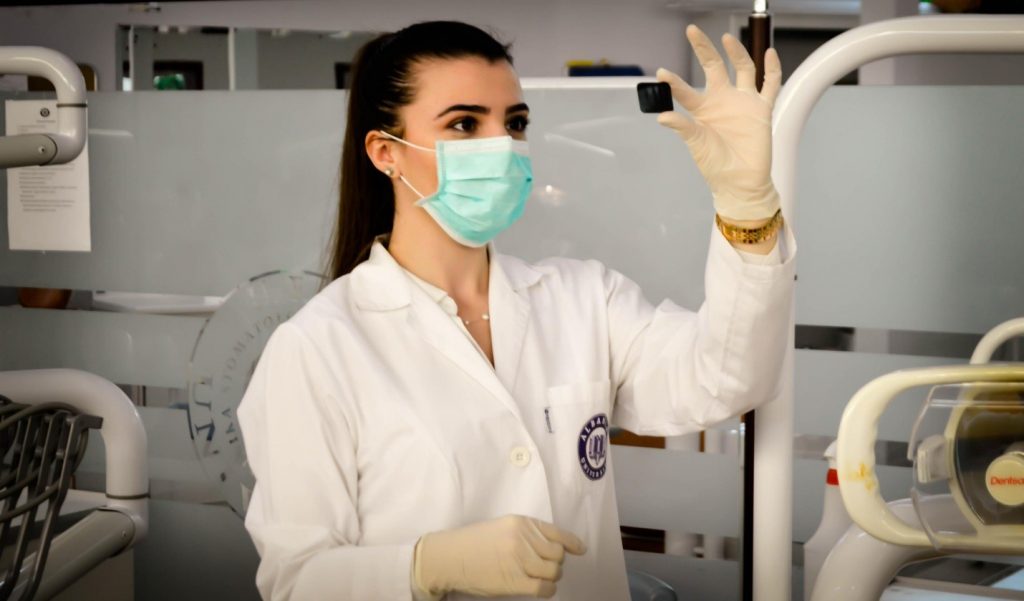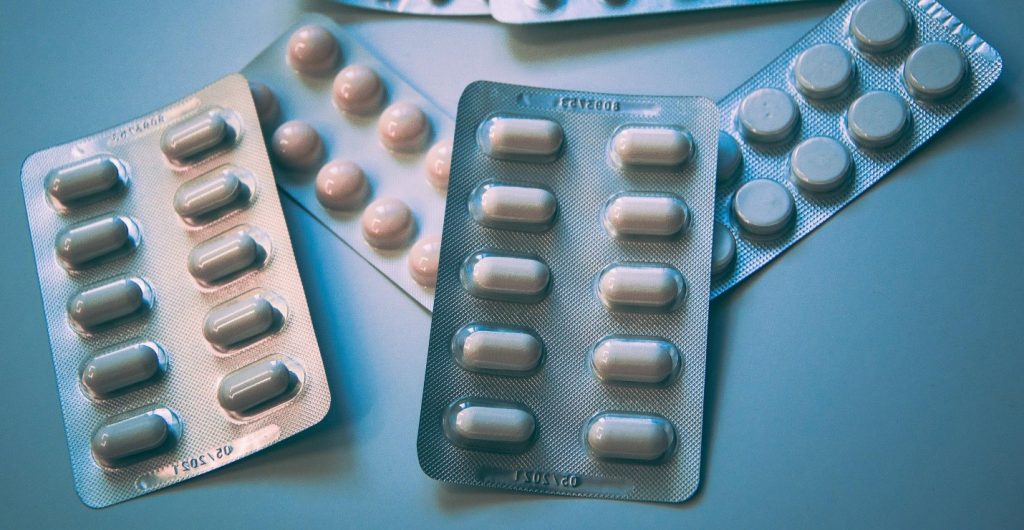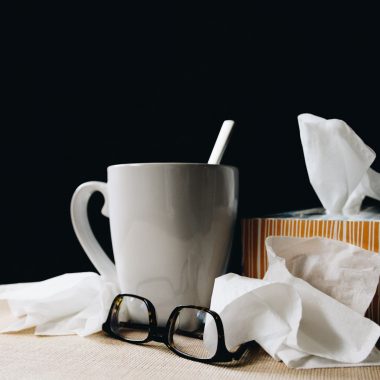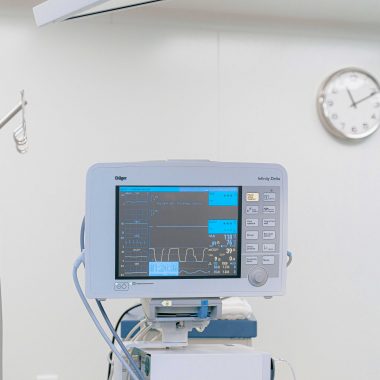Almost every woman ever has experienced the pain of period cramps at least once in her life. Period cramps are some of the worst pains you can experience. Some women describe them as feeling like you are being stabbed in the abdomen repeatedly, which is valid for most of us. However, that time of the month is possibly the worst.
Unfortunately for many of us, many women have it worse than others. For example, some women experience excruciating menstrual cramps in Addition to hormonal fluctuations and other side effects. Unfortunately, these women are sometimes brushed off and called dramatic by healthcare professionals when they describe how horrible their pain is.

This pain is often caused by PCOS, which stands for Polycystic ovary syndrome. PCOS occurs when women experience few, unusual, or long menstruation periods. This disease results in too much of a certain male hormone named androgen. It is characterized by developing many tiny sacs filled with fluid on the woman’s ovaries. This additional pressure on the ovaries often results in them being unable to release eggs which is why women with PCOS struggle with irregular periods.
PCOS was recently linked to diets, how certain diets make it worse, and how other diets can help you manage the symptoms. For example, if you are someone who is overweight or obese, eats a high fat, high-carb diet, doesn’t exercise, and doesn’t take care of yourself, your PCOS will get worse.
PCOS is affected by the overconsumption of foods high in saturated fats. This is because food high in saturated fats Stimulates proatherogenic inflammation. However, this effect is more significant and much worse, especially when PCOS is combined with being overweight or obese. Having too much fatty tissue, otherwise known as body fat, in the abdominal area and too much androgen will also contribute to the triggering of proatherogenic inflammation, which in turn will make your PCOS worse and more painful. When you change your diet to exclude saturated fats and include healthier, more nutritious meals and foods, your body’s inflammatory response improves, which means you don’t trigger any proatherogenic inflammation, making your PCOS easier to manage.

Unfortunately, many healthcare professionals don’t take this serious condition seriously until it’s too late. In recent years, there have been thousands of horror stories of women seeking medical attention for their PCOS and not getting it because their doctors didn’t believe their pain and brushed them off as dramatic women on their periods. Getting healthcare for PCOS is very hard. Unfortunately, many women ended up suffering for years in silence, not knowing what was wrong with them. Some of them even had to avoid sex as it does make PCOS symptoms worse, and some had to get their ovaries removed because their PCOS had progressed so much, and there was no saving the ovaries.
There is no treatment for PCOS. It cannot be cured. The only kind of cure we have is a hysterectomy. And even after getting a hysterectomy, many women will still suffer the long-term effects of high androgen levels. Androgen is a male hormone that causes the growth of thick body hair and a deeper voice and women with PCOS.
Unfortunately, getting your ovaries removed memes that this woman cannot reproduce. Therefore, these women lose their ability to have children and become mothers due to this disease.
In recent years, many studies have been done to show the effects of obesity and high body fat on PCOS. Unfortunately, almost all those studies have yielded the same results. Obesity makes PCOS symptoms much worse.
Changing your diet from a diet rich and saturated to one rich end healthy fats, low in carbs, and high in protein will help you lose weight and manage your PCOS symptoms.
Losing weight, we’ll eliminate a lot of the fatty tissue you might have around your abdomen if you are overweight or obese. This tissue worsens PCOS because it triggers the body’s inflammatory response, which is why you struggle with terrible pains when on your period with PCOS.
A healthy diet will cause weight loss which can help regulate periods and hormone production, which also helps lessen the effects of androgen on the body.
Usually, doctors recommend you go on a run or do some exercises or stretches when you’re on your period to help manage the pain because the uterus is a muscle, and stretching helps manage the pain and possibly eliminate it for a couple of hours. Exercising with PCOS is no different. It is also recommended that women with PCOS exercise regularly, even when they are struggling with pain because training can help release dopamine that will combat the effects of the inflammatory hormones released because of PCOS. PCOS is traditionally treated with birth control pills to help manage hormonal fluctuations and painkillers to help manage the pain. But eating a healthy diet, eating good food, and exercising regularly, which will lead to weight loss, can help you manage the symptoms almost as well.

The following foods are recommended by doctors to be consumed in moderation by women with PCOS. These foods have been tested and tried and have helped test subjects who struggle with PCOS manage their symptoms not only now but in the long run.
Seeds (chia, sunflower seeds, flax)
Legumes (lentils, black beans, chickpeas)
Berries (blackberries, raspberries, blueberries)
Whole Grain (Bulgur, whole oats, brown rice, quinoa)
Fish (salmon, tuna, shrimp, cod)
Lean poultry (skinless chicken, turkey)
Plant protein sources (beans, tofu, peas)
Fruits (strawberries, raspberries, blueberries)
Vegetables (spinach, kale, artichokes)
Unsaturated healthy fats (olive oil, pecans, avocado, nut butter)
The following foods are the foods you should avoid if you suffer from PCOS as these foods will definitely trigger your body’s inflammatory response and make your PCOS symptoms worse and also affect your health negatively as they cause weight gain, which is associated with a higher chance of heart disease and other issues.
White bread
Pizza dough
Regular pasta
White rice
Soda
Fruit juice
Bottled smoothies
Cold-pressed juices
Cakes, cookies, and other sweets
Sweetened cereals
Yogurts with added sugar
Ice cream with added sugar
Saturated fats
Trans fats (doughnuts, frozen pizza, French fries)
processed and red meats like fast food hamburgers
Artificial or heavily processed cheeses
It is important to note that even if you eat healthy food but still eat it in significant amounts and eat more than your calorie deficit, you will not lose weight, and your PCOS will not improve. Therefore, understanding your body and what diets work best for you is also essential.
You can still indulge now and then but try to avoid it if you can because this is not just a Weight Loss Diet. This is a diet meant to help you treat a disease.
It Is also necessary to keep in touch with your physician and go for regular checkups if you don’t plan on getting and hysterectomy.

Maintaining a positive attitude through all this will also help you in managing your symptoms. Surrounding yourself with good happy people and a good environment will also positively affect your PCOS since the release of endorphins will help counteract the effects of your body’s inflammatory response and help manage the pain and the symptoms and also help distract you from thinking about it and getting more upset.
Experiencing hormonal mood swings is normal. Typically, when you’re on your period, your body is at its most vulnerable state as your hormones are all over the place, and they fluctuate by the minute.
Hormonal imbalance causes mood swings that can sometimes be severe. Try distracting yourself from your emotions by running, doing some yoga, self-care, watching a movie, or listening to music while reading a book.
Distracting yourself is the best way to avoid the problems that mood swings will bring on later.
Other side effects of PCOS include lower back pain. You can use ointments or take painkillers to counteract that, or you can also do some stretching and some hot compress or get a massage at a massage parlor or by a loved one or significant other.
PCOS is an actual condition then countless women all across the world suffer from. It is painful, it is sad, and it’s uncomfortable. If you experience any of the signs or symptoms of PCOS or If you think you may have PCOS, it is essential to visit a healthcare professional and get tests done to ensure that you don’t have it or provide a proper diagnosis. If you feel like your healthcare giver is not taking your pain seriously, it is essential to switch to a new healthcare provider. You are not being dramatic. You are in pain, deserve to be heard, and deserve treatment.








